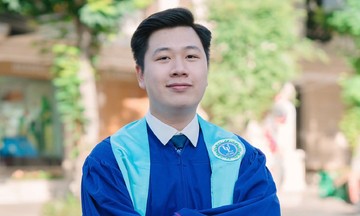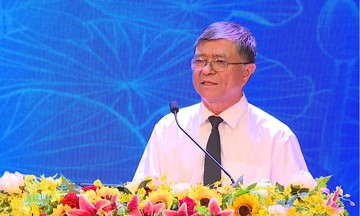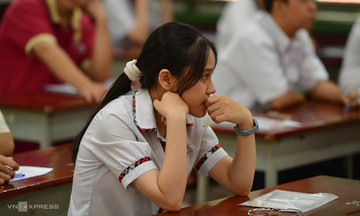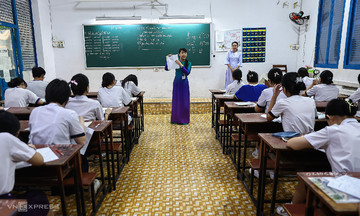Professor Tran Diep Tuan, Chairman of the University of Medicine and Pharmacy in Ho Chi Minh City (UMP) and head of the medical competency assessment development team, shared this information during the "Medical Licensing Examination: Governance, Policy and Practice" seminar on 23/6.
Professor Tuan explained that currently, doctors are licensed after completing their education and a period of practical training. However, according to the Law on Medical Examination and Treatment, starting in 2027, they will also have to pass a competency assessment exam administered by the National Medical Council. He believes this is a step forward in improving training and healthcare quality, and ensuring patient safety.
"Those already licensed before 2027 will not need to retake the exam", Professor Tuan said.
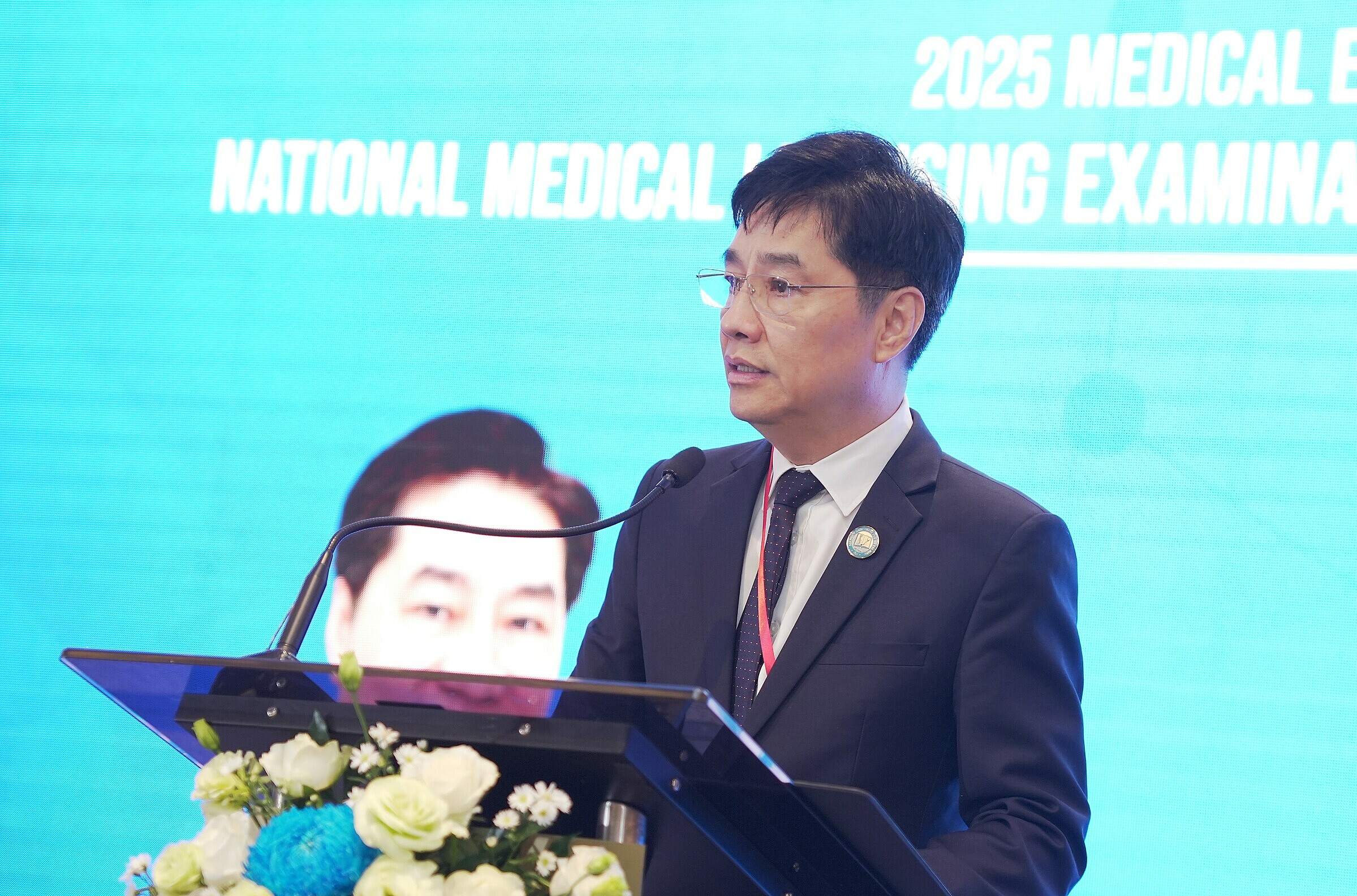 |
Professor Tran Diep Tuan at the medical licensing examination seminar, 23/6. Photo: UMP |
Professor Tran Diep Tuan at the medical licensing examination seminar, 23/6. Photo: UMP
According to Professor Tuan, numerous lecturers have been invited to help develop the assessment tools. The immediate tasks are designing the question bank, establishing exam procedures, and ensuring security.
"The exam bank is expected to contain 900 selected multiple-choice questions. To achieve this, we will initially create around 1,500 questions and then carefully refine them to ensure quality", he said.
Initially, the exam will focus on theoretical knowledge through multiple-choice questions. Clinical skills assessment will be implemented later, once the necessary organizational, logistical, and personnel arrangements are in place.
"Ideally, the exam should include a clinical practice component. However, integrating this aspect is complex and will likely take at least another 10 years", Professor Tuan estimated.
He cited South Korea as an example, where medical licensing exams began in 1952, but it wasn't until 2009 that they combined theory and skills assessment. In 2021, a dental practice component was added.
At the seminar, Deputy Minister of Health, Professor Tran Van Thuan, stated that the competency assessment exam is not just a final skills test, but an extension of competency-based medical training. This systemic change requires consensus and active participation from all stakeholders, including training institutions, healthcare facilities, regulatory bodies, and students.
According to the Ministry of Health, Vietnam has 214 medical training institutions, including 66 universities. Approximately 12,000 doctors are expected to graduate in 2024.
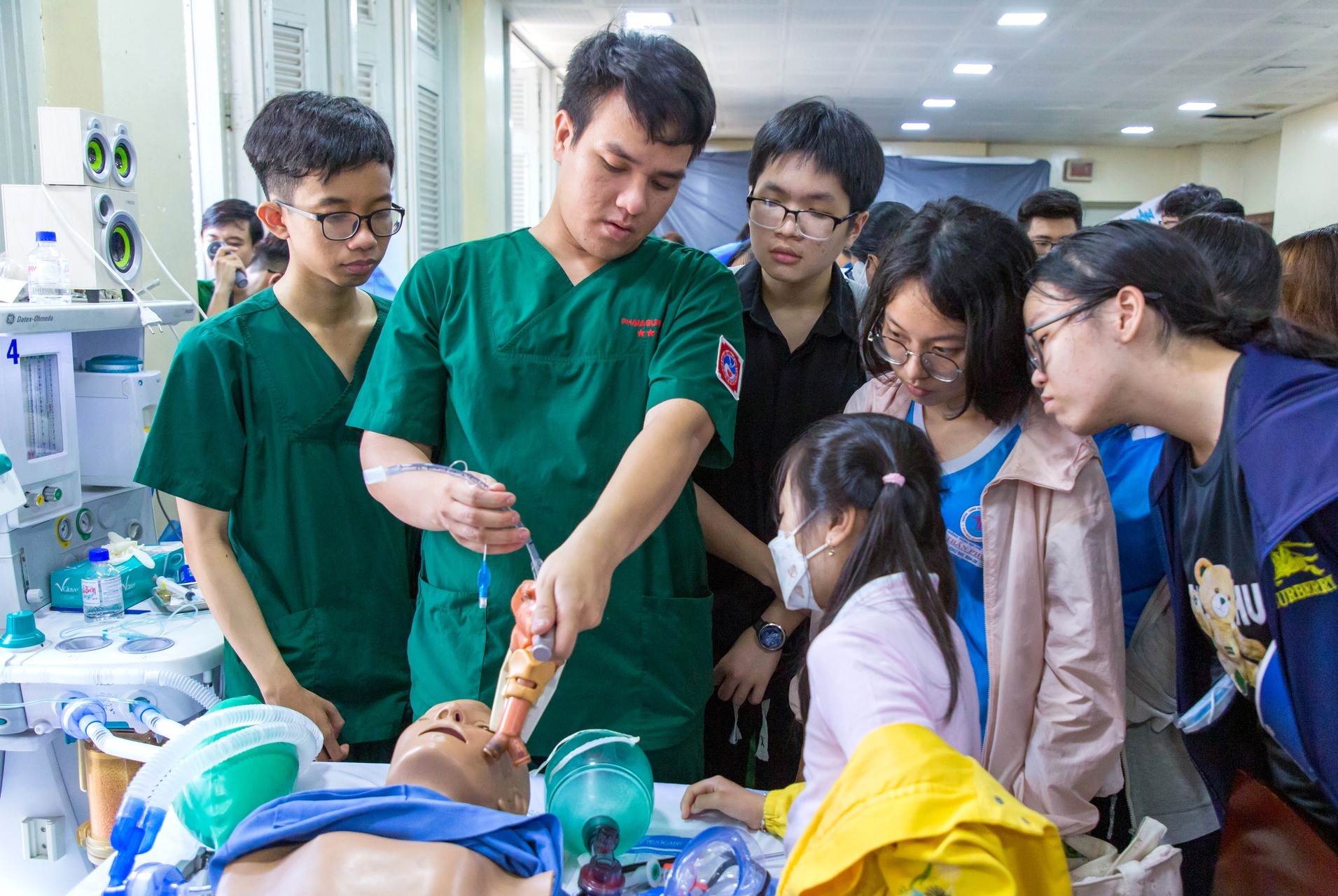 |
Students observing a practical training model at UMP, last April. Photo: UMP |
Students observing a practical training model at UMP, last April. Photo: UMP
Le Nguyen





